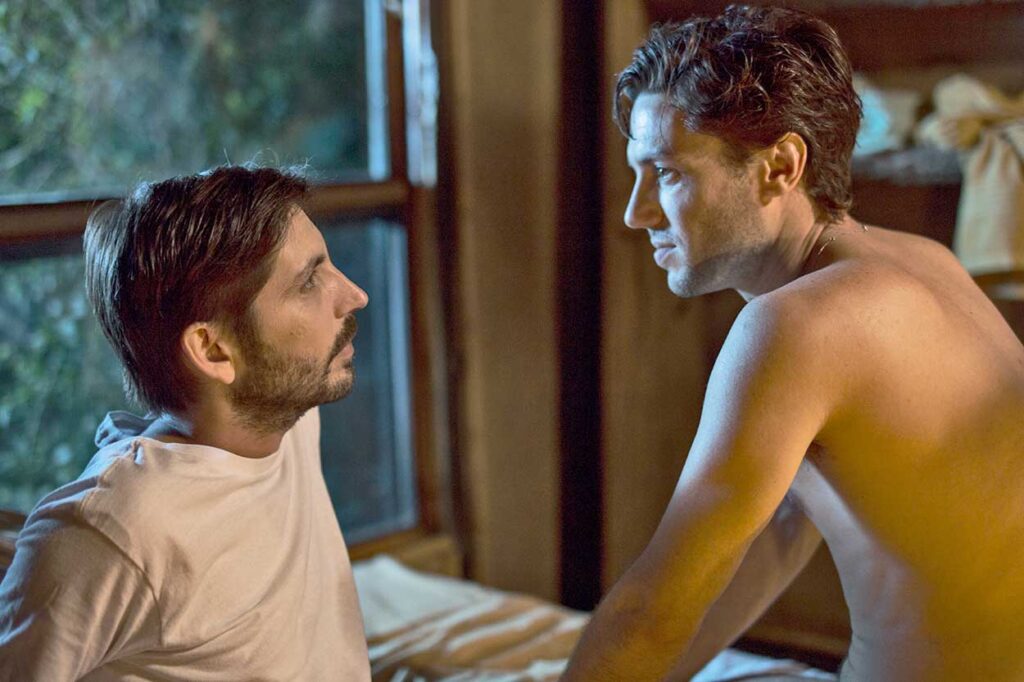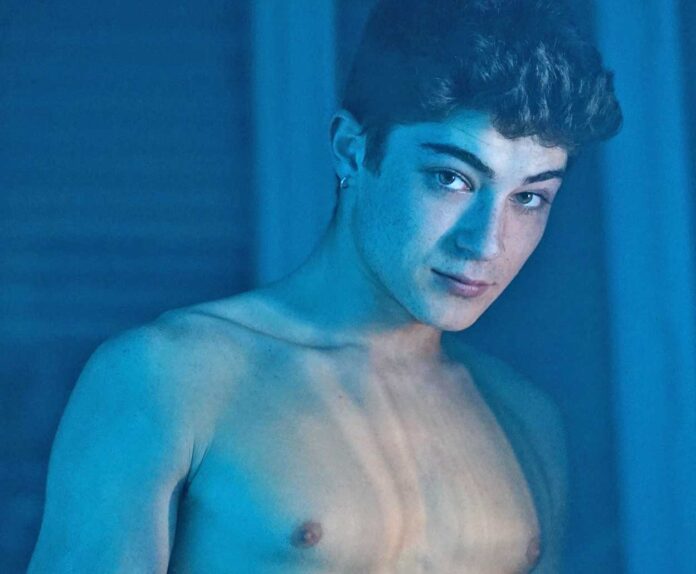This month, there are two streaming options — one an Italian feature film, one an Argentine TV series — that depict bisexual young men facing romantic quandaries. Both are flawed, but each have their merits.
“Ernesto” (available March 9) has the baby-faced teenage title character (Federico Russo), seeking love in Rome. Cowriters/directors Alice de Luca and Giacomo Raffaelli take an impressionistic approach to telling his story, often shooting scenes without dialogue or sound. The filmmakers use a handheld camera and develop a raw, urgent style using closeups to create various intimate and dreamlike moments.
The plot is slim. Ernesto is first seen acting in a play with his best friend and girlfriend Anna (Silvia Micunco) — but they soon break up. He has fantasies about Tommaso (Leonardo Venturi) which include scenes of the young men kissing, or with their limbs entangled in bed, or chests pressing together. When he later becomes romantically involved with Nicoletta (Nicoletta Cifariello), and they go to a nightclub together, Ernesto starts dancing with Orazio (Luca Ingravalle), and ends up in bed with him. The two young men soon begin a relationship, which leads to Ernesto doing some soul searching.
“Ernesto” has an episodic narrative style that asks viewers to fill in some of the blanks for the character. Russo is adorable, but Ernesto’s meditative moments largely involve him looking pensively into the distance. The film’s deliberate lack of dialogue is often unsatisfying. When Ernesto considers that it is possible to love two people at the same time, the directors get at their central thesis — that of developing a sense of personal freedom. This idea is apparent in scenes of Ernesto goofing around Rome, or lying in bed with Nicoletta, or imagining a romantic moment with Tommaso, but the filmmakers do not develop it sufficiently for it to have much impact.
This brief (76 minutes), film feels too slight. There are scenes of Ernesto kissing guys and girls in a theater exercise, suggesting his sexual fluidity, and scenes of him participating in a women’s right demonstration, emphasizing his liberal politics, but who Ernesto is (or wants to be) never fully comes across. When he tells his mother, Giovanna (Ilaria Bevere) that he is a Communist, Ernesto’s commitment feels fleeting — and it is. Yes, he is an unformed teenager, and he is experimenting with sex and politics, but it becomes difficult to generate much emotion for him as he struggles with love and life.
To its credit, the film is beautifully lensed. The codirectors dedicate it to Agnes Varda, and the resemblance to her documentary-life features is apparent. Alas, “Ernesto” is only intermittently engaging.

“Everything I Like” (available March 23) is an 8-part Argentine TV series that has Daniel (Milton Rosés), an ordinary straight guy, finding himself unexpectedly attracted to Javier (Esteban Masturini), the new and also straight cameraman at the ad agency where he works. On the cusp of 30, Daniel has anxiety about life in general and his sexuality in particular. But this low-budget show, which feels like an amateur web series, does not invest enough in depicting his malaise. Rosés never makes his passive everyman character ingratiating.
“Everything I Like” is sloppily made; it features a dozen characters interacting haphazardly in a handful of minimalist locations. The agency scenes are particularly awkward. It may be that the dialogue and situations are meant to be deadpan-funny, but even when the actors have some energy, scenes of them reacting with frustration to colleagues or clients are clunky.
The show does have some interesting moments involving Daniel’s personal encounters, but his character seems oblivious when he gets cruised in a men’s room or hit on at the gym. Even a date with a hunky guy in one episode goes nowhere. If viewers make it to the last episode, Daniel does get a decent speech about his life and struggles, and how things turn out with his relationships with both men and women provide a cliffhanger.
However, the only real dramatic tension exists between Daniel and Javier. The seductive Javier goads Daniel into doing some drugs (which cause him trouble), and Javier teases Daniel, by lying seductively in a bed, or giving him a back massage. That these characters dance around their attraction is arguably the most interesting part of the series. Can these ostensibly straight guys have a gay bromance? Alas, “Everything I Like” hints at an answer when Daniel and Javier take a trip to a resort to shoot an advertisement and get intimate with one another.
The show may have been better if Javier were the main character. Masturini is easily the best thing here, and he certainly plays up the charm. Javier is conflicted — he is in a relationship with Pame (Carolina Caballero), who is wary of his flirtations with Daniel. Masturini injects some life into his role that makes viewers curious about what Javier thinks and feels. Little else in “Everything I Like” feels real.
Ultimately, this show is too slight to warrant one’s full attention.
